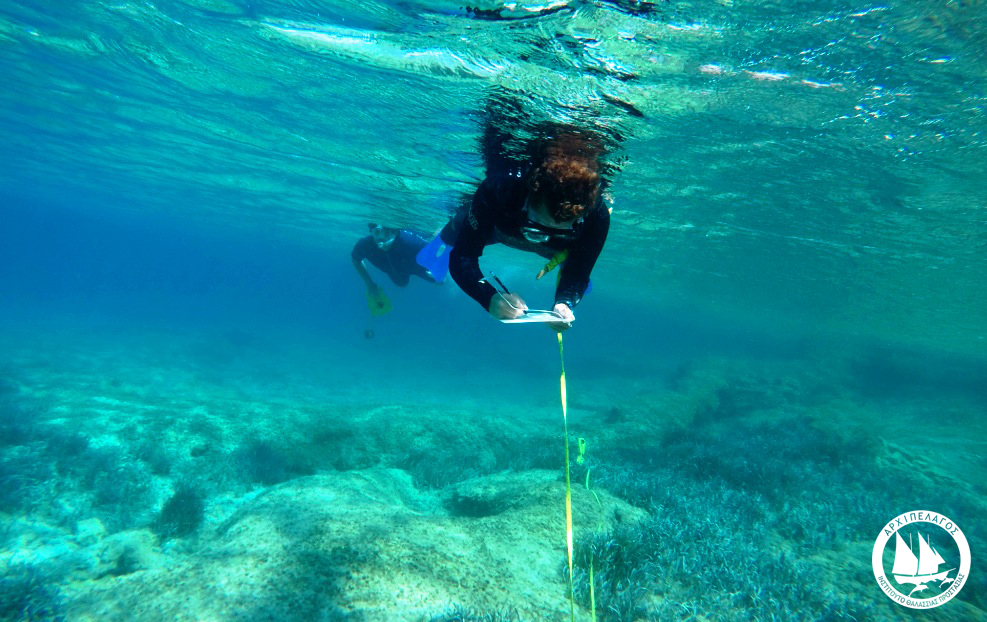The Joint Educational Oceanographic Research Course of the University of Essex UK with the Archipelagos Institute, took place in the marine area between Samos and Ikaria islands. For one week, with parallel recordings by Archipelagos’ 3 research vessels, with the aid of contemporary research equipment, the final year students of Marine Sciences from Essex university, were trained by expert scientists and researchers from both institutions in the multi-level data collection in the open seas. They used new technologies and relevant research protocols developed by the Archipelagos Institute in collaboration with universities abroad.
Through such activities, we aim to encourage the new generation of scientists who will be called upon to manage the major environmental problems of the European seas to gain a deeper comprehension of the crucial need to link marine research with efficient conservation actions.
The Research Course focused on key areas including:
- The study of pelagic ecosystems (physicochemical and biological parameters) in combination with cetacean populations (i.e. dolphins and whales), for which there are still large knowledge gaps in the Greek seas and the Mediterranean overall. In this field, the Archipelagos Institute develops new research protocols, which exploit cutting edge technologies, so that along with the populations of these rare species, the status of the fish stocks they feed on is also monitored. The severe decline of fishstocks due to overfishing and other anthropogenic impacts is a major problem for the survival of marine mammals in our seas.
- The study of fisheries and fisheries management. Building on the empirical knowledge of artisanal fishermen from east Aegean, in combination with the results of research assessing the state of fish stocks, we can understand extent of fishstock decline, but also the management practices through which fisheries could return to sustainable levels in the Greek seas.
- Mapping protected marine ecosystems. With the combined use of modern research tools, multi-level mapping has been done to provide detailed GIS maps of Posidonia seagrass meadows, depicting also the extent of damage that has been caused by IUU fisheries (eg illegal trawling).
- Estimating the content of microplastic fibers in marine ecosystems, which have been released in the seas as a result of the break down of plastic debris that end up in vast amounts in our environment and seas. This activity focused on the assessment of the content of microscopic plastic fibers in fish, sediment and surface waters.
This Joint Research Course is a compulsory module for Essex University and is taught annually in the east Aegean Sea to final year students of Marine Sciences from Essex university. This field course is one of the many aspects of the long and creative collaboration between Archipelagos Institute and Essex University, over the past 17 years. Our common goal is to exchange know-how and expertise, but also the continuous improvement of applied research, aiming to produce results that can substantially improve the protection of the seas, both in Greece and internationally.
The realization of these training actions in applied marine research by the Archipelagos Institute also develops the significant comparative advantage of the Aegean Sea nature, and through the participation of hundreds of students and scientists in such activities every year, the local economy is indirectly supported.
This course was followed by a new joint Oceanographic Research which was launched after many months of preparation, in collaboration with the UNEP / MAP – SPA / RAC, involving numerous scientists and decision makers from many Mediterranean countries (Greece, Italy, Tunisia, Libya, Lebanon, Egypt and Montenegro). It is a pioneering initiative, as it aims to establish common research protocols, which will produce comparable results in the various regions of the Mediterranean. These actions aim at the better implementation of the Ecosystemic Approach adopted by the United Nations, focusing on the protection of ecosystems and coastal communities, and not only the protection of individual species. We will inform you soon about the development of this important endeavour.





